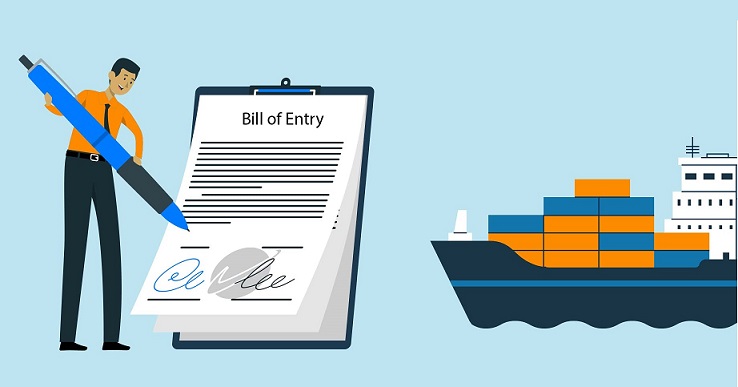Estimated reading time: 3 minutes
A Bill of Entry (BOE) is a crucial document in international trade. Importers submit this form to customs authorities for clearance of goods into a country. This document ensures compliance with regulations and determines applicable duties, taxes, and tariffs. Without it, customs authorities will not allow goods to enter the country.

Purpose and Importance of the Bill of Entry (BOE)
The Bill of Entry plays a vital role in customs clearance. Importers must file this document to declare details of imported goods, including value, classification, and origin. Customs authorities use this information to calculate duties and taxes.
Timely submission of the BOE prevents unnecessary delays at ports. Authorities also use it to track trade statistics, ensuring accurate import data. Every importer must obtain a Bill of Entry number from customs to proceed with clearance.
Main Information in a Bill of Entry
A BOE includes critical details about the shipment. Some of the most important fields are:
- Importer and exporter details (name, address, and tax identification).
- Customs location and port of entry.
- Invoice number and date.
- Description of goods, quantity, and weight.
- Harmonized System (HS) code for classification.
- Declared value and applicable duties.
- Mode of transport and bill of lading number.
This document must be accurate to avoid penalties or customs clearance delays.
Filing and Processing of a BOE
Importers file the BOE electronically through the customs portal. After submission, customs officials verify the details and may inspect the goods. If everything meets the requirements, they release the shipment.
Authorities may also request additional documents, such as certificates of origin, permits, or test reports. Importers should ensure compliance to avoid legal issues.
A BOE serves as proof of legal import. Businesses must retain this document for future audits and tax filings.
Check out more pages of our website for related content:
Access the Full Contract Directory Index
You can browse the complete alphabetical list of all commercial, financial, and project-based contract templates by visiting our A–Z Contract Index.
References
- ClearTax – Bill of Entry – A glossary entry explaining the BOE as a customs declaration form essential for paying duties, taxes, and ensuring regulatory compliance on imported goods.
- Total Freight International – BOE Meaning in Logistics – Bill of Entry – This logistics guide describes the BOE as a key declaration document detailing goods’ nature, quantity, and value for effective customs clearance.
- LOTUS Containers – Difference between bill of lading and bill of entry – An article contrasting shipping documents, emphasizing the Bill of Entry’s role as a legal declaration filed by importers for customs processing and compliance.
has been added to your cart!
have been added to your cart!



